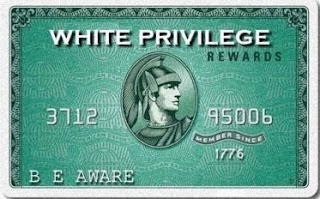The events of the past few months have brought the subject of race back to the fore of national conversation. But listen to the conversation and you won’t hear many accusations of “racism”. Instead, you’ll hear references to “white privilege.”
In many ways, “white privilege” is a re-branding of “institutional racism.” No one sees themselves as racist or even benefiting from racism. White privilege is a concept that allows whites to recognize that they personally benefit from the system without having to take personal responsibility.
The term “white privilege” originated in the 1960s whenTheodore W. Allen began work on “white-skin privilege.” But it did not receive wide-spread use until the 1990s. Today, it is used by writers more often than “racial injustice” or “institutional racism.”
One reason for the widespread use of “white privilege” was a 1988 essay by Wellesley professor Peggy McIntosh (excerpt here). This essay describes privilege as “as an invisible package of unearned assets that I can count on cashing in each day.” The power of the essay comes in its tutorial on dozens of ways privilege plays out in our daily lives. McIntosh lists statements that a reader can use to assess their own privilege, such as
- I can worry about racism without being seen as self-interested or self-seeking.
- If a traffic cop pulls me over…I can be sure I haven’t been singled out because of my race.
- I will feel welcomed and “normal” in the usual walks of public life, institutional and social.
For professors looking to start a class discussion on race, the essay was a godsend. It not only gave concrete examples of white privilege; it presented race without guilt.
McIntosh explained the popularity of the paper in an interview with the New Yorker:
I think it was because nobody else was writing so personally, and giving such clear examples, drawn from personal experience, which allowed readers to understand this rather complicated subject without feeling accused.
The problem, however, is that we now have a concept that recognizes that the hundreds of millions of whites are privileged but no one is responsible for this elevated status. Race-based privilege is passive. Who exactly grants whites their privilege is unknown.
It’s not evil; it’s being treated differently.
It’s not something you asked for; it’s something you’re born with.
It’s not racism; it’s privilege.
And it’s not your fault.





